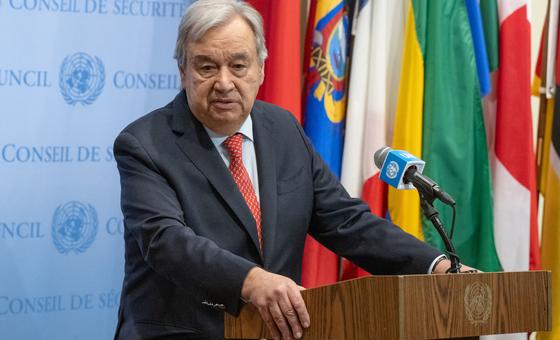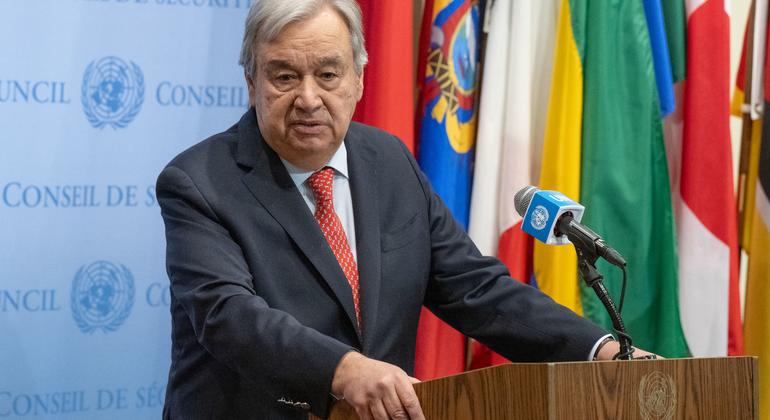
UN Secretary-General António Guterres was briefing reporters in New York after seeing for himself over the weekend the “profoundly shocking” speed at which ice is melting in Antarctica – three times faster than the rate in the early 1990s.
New figures reveal that sea ice at the South Pole is now 1.5 million square kilometres below average for this time of year; that’s equal to the combined surface area of Portugal, Spain, France and Germany combined.
Nowhere to hide
“What happens in Antarctica doesn’t stay in Antarctica”, Mr. Guterres said. “We live in an interconnected world. Melting sea ice means rising seas. And that directly endangers lives and livelihoods in coastal communities across the globe.
He noted that it’s not just the impact of floods and saltwater on food and water supplies at stake, but the viability of small islands and entire cities on coasts across the world.
“The movement of waters around Antarctica distributes heat, nutrients and carbon around the world, helping to regulate our climate and regional weather patterns”, he told correspondents outside the Security Council.
“But that system is slowing as the southern Ocean grows warmer and less dense. Further slowdown – or entire breakdown – would spell catastrophe.”
‘Calamitous’ rise
With no let-up in fossil fuel extraction “we’re heading towards a calamitous three-degree Celsius temperature rise by the end of the century”, he warned.
:If we continue as we are, and I strongly hope we will not, the Greenland and West Antarctica ice sheets will cross a deadly tipping point.”
This represents an astonishing rise of around 10 metres.
The vicious cycle means accelerated heating as ice diminishes and more extreme weather.
At COP28 in Dubai, which starts later this week, “leaders must break this cycle”, the UN chief declared.
The solutions are there
“The solutions are well known. Leaders must act to limit global temperature rise to 1.5 degrees Celsius, protect people from climate chaos, and end the fossil fuel age.”
Only a global pact to triple renewable energy use, a doubling in energy efficiency and access to clean power for all by 2030, will be sufficient, he argued.
“Antarctica is crying out for action”, the Secretary-General added. “I salute the thousands of researchers – in Antarctica and around the world – expanding our understanding of the changes taking place on the continent.
“They are testament to human ingenuity and the immense benefits of international collaboration. Leaders must not let the hopes of people around the world for a sustainable planet melt away.”



